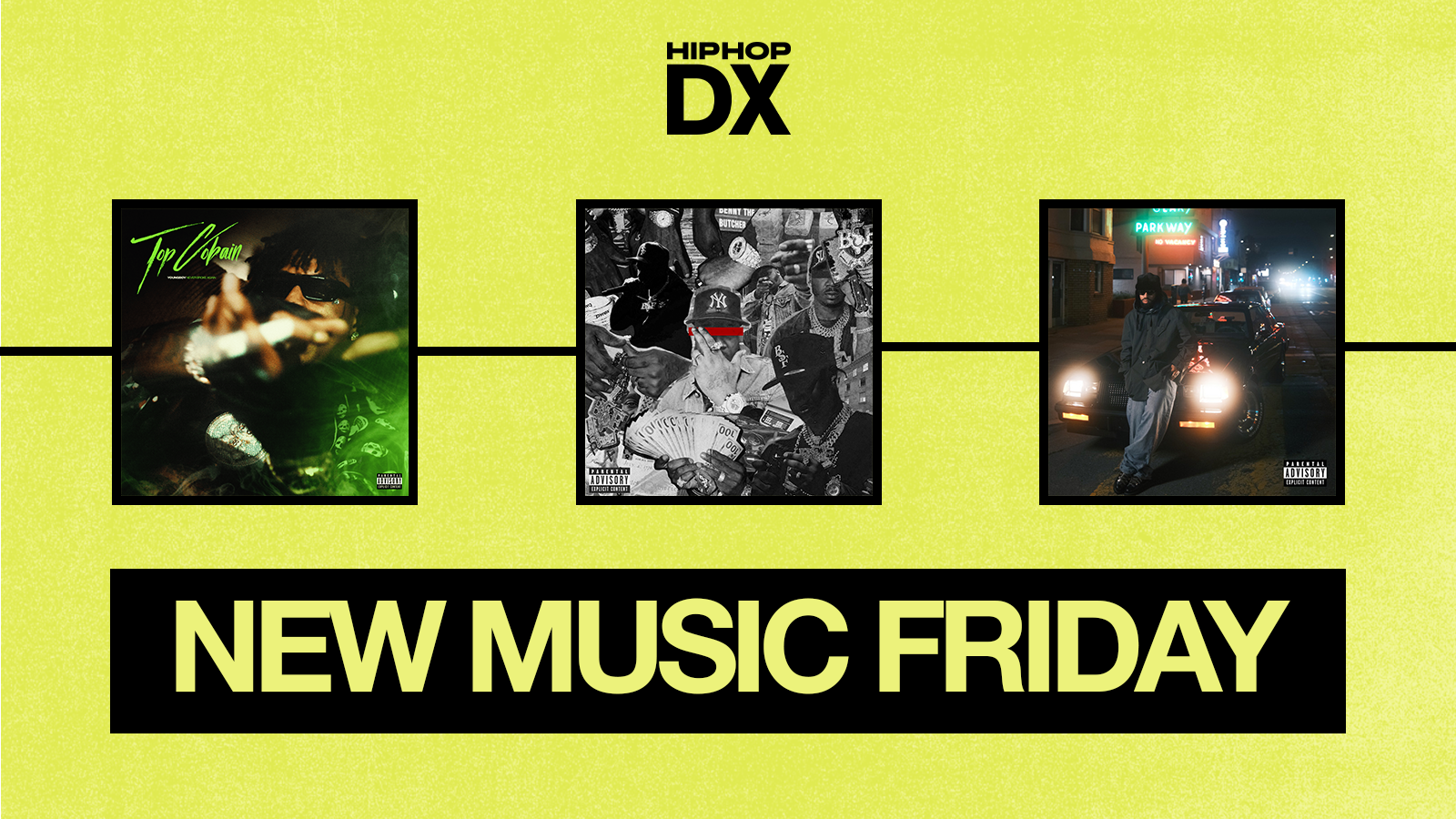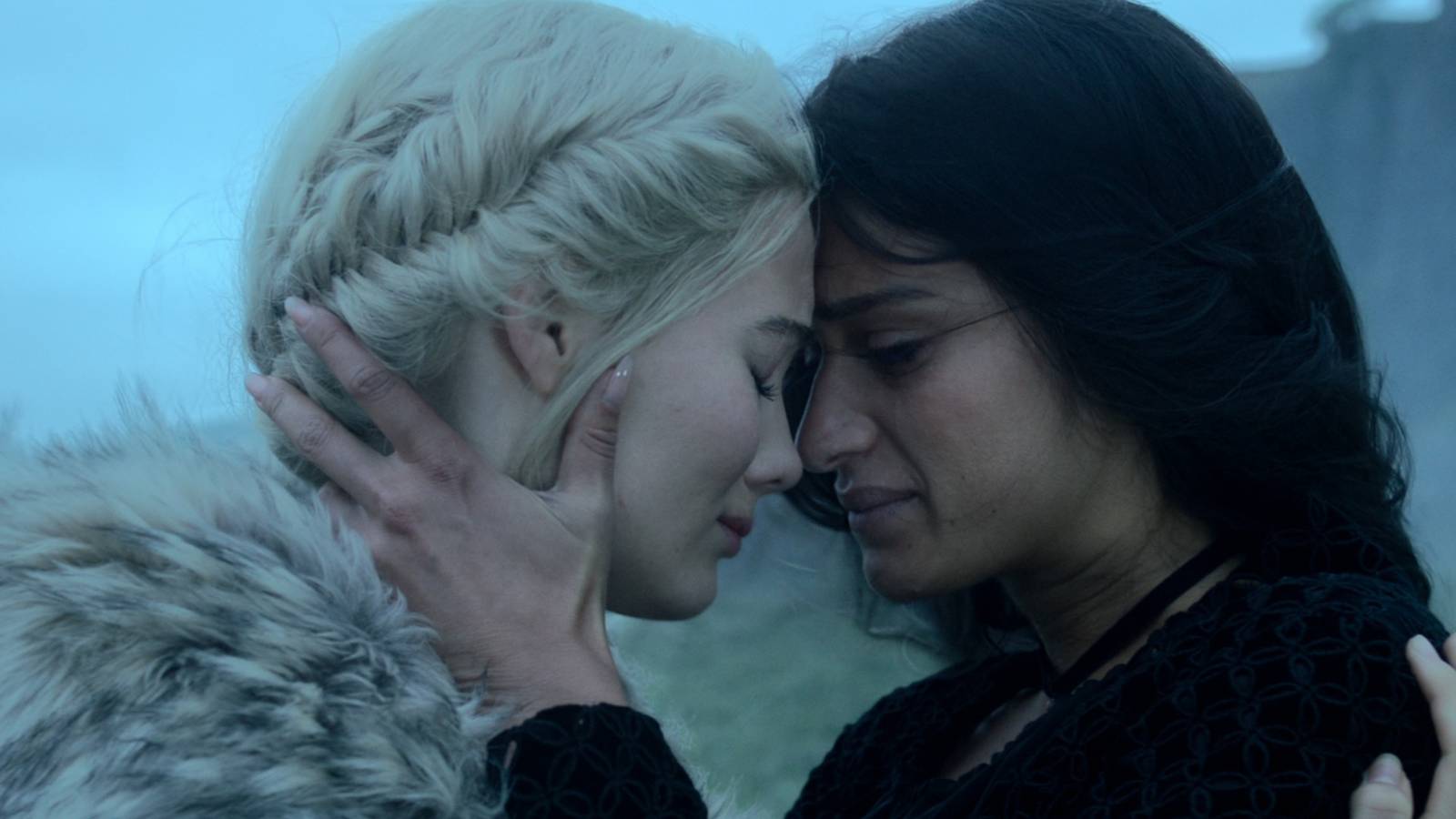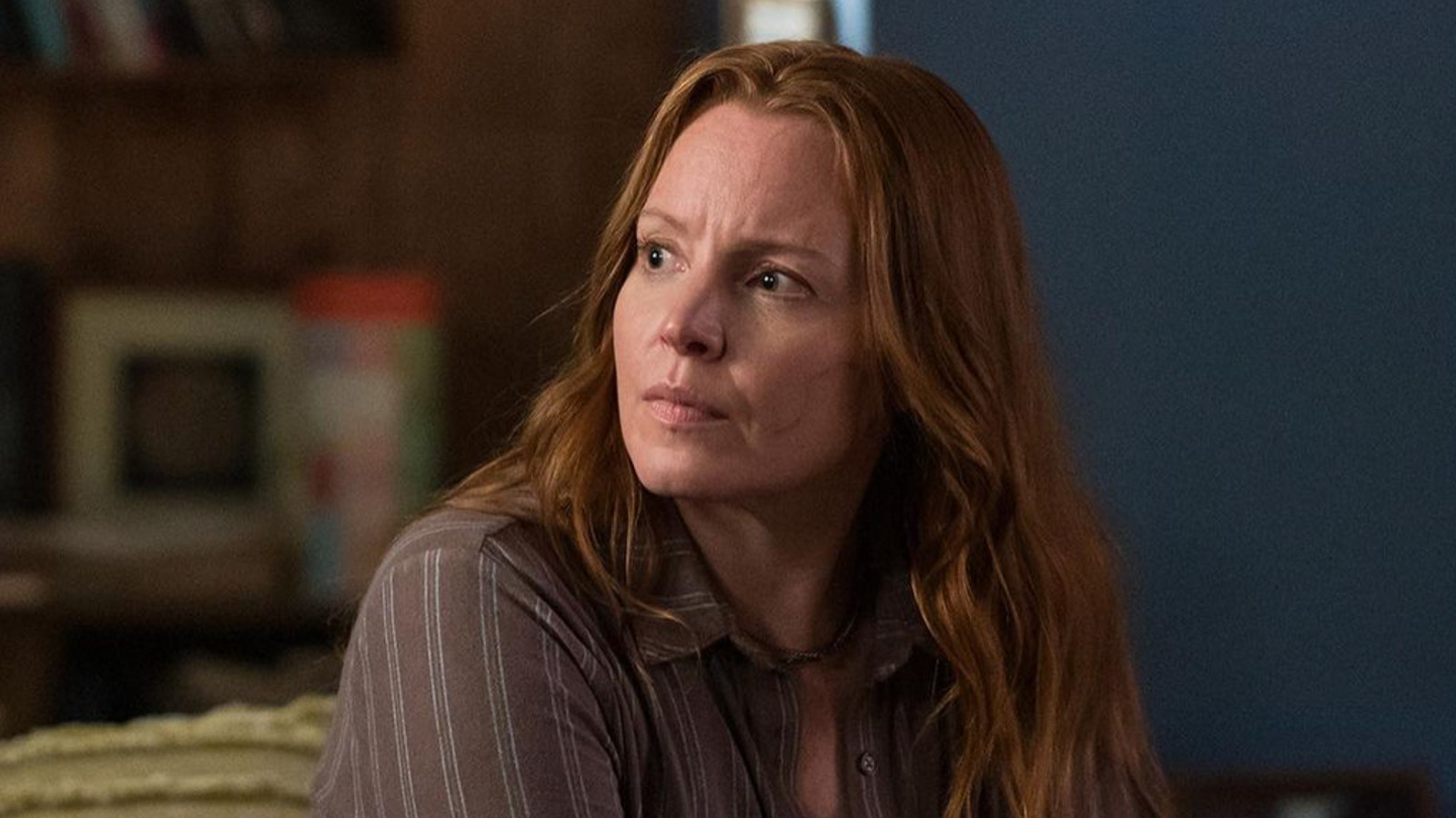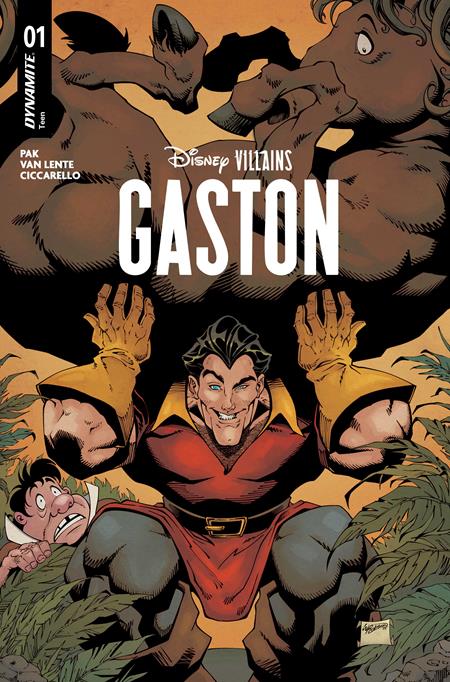The world of Aaron West and the Roaring Twenties is profoundly detailed in both sound and story. Across three albums, including his latest, In Lieu of Flowers, out today, Dan Campbell has crafted an exhaustive story of narrative fiction that rivals the painstaking process of a Wes Anderson film. This time, he’s enlisted a 16-piece band, and although the full group only play together on two songs — the title track and “Whiplash” — the wide array of instrumentals adds greater depth to the story as West neglects, and then later strives, to examine his own wreckage. To heighten the storytelling, the Wonder Years frontman often journals as West and even performs shows in character, making everything that happens in real time canon to the albums. “The deeper you dig into the lore and the more you invest yourself in story and the more interconnected you see everything, it just brings a richness to the project that can’t be attained without spending that time with it,” Campbell suggests.
Read more: 20 greatest Hopeless Records bands
It’s all written with a director’s eye for suspense, leading up to a satisfying conclusion. Campbell has long yearned for the shared days of watching a TV finale simultaneously with thousands of others — and is reinvigorating the idea. Last night, he debuted the new songs at Asbury Park — the place where “Smoking Rooms” begins — and livestreamed the event so fans could witness the final track’s reveal at the same time, regardless of time zone. In the words of Campbell, every album’s a season, and every song’s an episode, so In Lieu of Flowers’ closing number could very well be the “series finale.”
Here, he unravels the story and intense meaning behind every song on the album.
“Smoking Rooms”
Where the story ended on the previous record was that Ann’s brother-in-law had passed away, so Aaron had left the band to go be home with his sister and his nephew and just generally be a positive and helpful force in the household. But because of that, he wasn’t able to tour and had to quit the band. So, this album opens with the solo touring that I was doing on that record because I do the whole thing in character. What we did was I went on tour for the record, and I did it solo because, canonically, Aaron has left the band. Every night I would say, “I’m here because I made a promise to be here, but it’s not the same without the band. I’m happy that you’re here, and I’m happy I get to play for you, but it has been deflating.” The song had to start solo because the tour started solo. Aaron’s sister, Catherine, joins the band in Asbury for this solo show, and after they play a song together, Catherine motions, and the rest of the Roaring Twenties rejoined the band live in front of everyone, and it’s a big surprise reveal at the show, so we wanted to try to find a way to sonically mirror that. At that moment in the song, the band returns both physically, and then musically, there’s a return to full-band form.
“Roman Candles”
Canonically, it’s right after “Smoking Rooms.” Everything is chronological and locks to real time, and the events of “Smoking Rooms” are in January of 2020. The events of “Roman Candles” are in February and March of 2020. The band is getting excited and booking full-band tour dates again and rehearsing, but there’s this undercurrent of this flu, this coronavirus happening, and you start to see it more and more in the news. Aaron’s mom works at the hospital, and she starts to see cases. It’s almost this ironic moment of the band saying, “We’re back together — nothing can stop us now.” And that’s March of 2020. Then the record scratches, and obviously you have a global pandemic.
“Paying Bills at the End of the World”
Because of the way we portray Aaron onstage, everything that happens in the world is also happening to him, and on this one, it’s through the pandemic. You’re seeing it through the eyes of someone who had everything they were planning to do fall to pieces and whose family is struggling to make ends meet because their income sources have dried up. He’s looking for work and finds a job at his old friend’s dad’s company doing driveways and garage doors on Long Island and is living this mundane life where he’s struggling with the fiscal realities of the pandemic. We’re now broke and we live in America, so our healthcare is not afforded to us unless you’re getting it through work or paying on the marketplace.
It’s this anxiety that I know a lot of people felt, which is, “Not only do I not want to get sick and potentially die, but I also don’t want to get sick because my family can’t afford it.” At the end of that song — because I look at this project as a lot like television, and I think of every record as a season and every song as an episode — you get your first end-of-episode cliffhanger, which is that Aaron runs into Sam, who’s an old friend from high school while working on their driveway.
“Monogahela Park”
Next is the two of them linking up and going to catch up at a bar on Long Island later in the pandemic. It’s both a reprisal of their past relationship, and it serves to catalyze your understanding of Aaron’s fear of intimacy. On the first of these three LPs, the project opens with Aaron going through a divorce, and now 10 years later, he’s never been vulnerable around anybody. Sam is pretty obviously flirting with him. They put their hand on his knee, and at the end of the song when Aaron is dropping Sam off, they lean in, and Aaron leans away because he is so afraid of vulnerability, so afraid of intimacy, so afraid of opening himself up to get hurt again. But he sees the look in their eyes, and the realization in that moment is your fear of being vulnerable, of being hurt, can actually cause hurt. You’ve actually made this person that you care about feel bad about themselves because you’ve rejected them, not because of anything about them, but because of something about you — and that starts a spiral on the album.
“Alone At St. Luke’s”
You start to see some foreshadowing early in the project and the early records. Aaron has wavered back and forth with drinking and obviously is a problem drinker, but has been able to bury it for periods of time and compartmentalize it. You see it on “Monogahela Park” where Aaron is drinking seltzer at the bar. He’s chosen not to be drinking. I think that that’s because he recognizes himself as a problem drinker, recognizes himself as someone who does not handle it well, especially when he’s drinking out of sadness. When we get to “Alone At St. Luke’s,” it is the first time the band has gone back on tour since the pandemic, and they’re on tour in the U.K., and they’re having fun. He starts to drink again under the pretense that this is not sadness drinking, this is not trauma drinking — this is celebratory drinking. He convinces himself that is somehow different and better and OK.
Then the whole band — and this actually happened on the U.K. tour — except for him gets COVID, and this four years in the making full band reunion tour is suddenly shot directly in the kneecap, and it goes to just Aaron alone. Now all of that joy that the beginning of the song carries suddenly stops when the band leaves, and it becomes loneliness and sadness again. And he continues drinking. You see the drinking take a turn from celebratory drinking directly back into sadness drinking and problem drinking.
“Whiplash”
On “Whiplash,” you see him back home. We’ve gone from being on tour in front of all these people and feeling, when the band was there at least, powerful and important and validated. All of these people came to these shows to see us play, to sing these songs, and then having to immediately go right back to your crappy job fixing garage doors and repaving driveways. The reason for that is, and you find out on there, is that the record label has been putting off the decision whether or not to exercise the band’s option as to whether or not they’re going to release the next record.
That puts the band in a career holding pattern. They can’t really tour because they don’t have any new songs. They can’t record a record because the label has not decided whether or not they want to do it, and because the label hasn’t decided that, they’re not free to go elsewhere. The shock to the system of going from standing on stage in front of crowds of hundreds of people to being back working at this dead-end job and the fact that he’s drinking again starts to spiral into a depression and exacerbates the problems that were already there. Earlier I said he had been able to compartmentalize his drinking. That compartmentalization is breaking down and starts to bleed into other parts of his life, and then at work, he breaks the hand he needs to play guitar. Now not only is he in a holding pattern — he’s in a holding pattern and physically incapable of playing anyway.
“Spitting in the Wind”
[With] “Spitting in the Wind,” the band is still in this holding pattern with the label, and they say, “Fuck it, now that your hand is healed, we’re going to fly to LA and play a show, and we’re going to show them.” So the Roaring Twenties, in both real life and on this record, go to LA and play this place called The Peppermint Club. The record label is really there in the front row. Aaron is drinking, and he’s drinking more than he normally would at a show because he’s nervous — not just because the label is there, but because he’s seeing his friend Rosa, who you learn about on the previous album for the first time in years and the first time that Rosa’s seeing him play with this band. The nerves are getting to him, and he’s onstage playing and starts to feel his hand cramping up from having broken it and then looks out at the crowd and sees the label almost not paying attention and just laughing and drinking.
This resentment builds up in him, fueled of course by the alcohol where he’s thinking, “Man, here I am trying to convince these people that I’m worthy of their time and energy, and I’m doing that with this hand that’s in pain because I broke it at this job that I wouldn’t have had to have had anyway if they had just made up their mind.” And it explodes, as it did in real life. Aaron is screaming at the record label in front of the whole crowd, and the band is embarrassed and angry at him about it, and the song ends with him getting in a fight with the band and storming out of the back of the venue.
“I’m an Albatross”
That brings us into the next track. Sometimes there’s days or weeks or months between these songs — “Spitting into the Wind” into “I’m an Albatross” is an immediate five minutes later kind of thing. I think it is the first moment that he sees that he could be worthy of redemption. He storms out, doesn’t answer phone calls for days after that, and goes on a bender, and it mirrors the first album’s bender purposefully. It’s in harmony with that. On the first album where he was able to pull himself out of his spiral, this time, it’s not him that pulls him out — it’s his sister calling him and saying, “Hey, I believe that you can get better, and I don’t want to see this happen to you.” He flies home and understands that he has a problem, like hallmarks of addiction in his behavior, and asks if his family and his friends can help him and get him into a rehab facility.
“Runnin’ Out of Excuses”
That brings you to “Runnin’ Out of Excuses,” which is the act of getting treatment. The entire song is in this facility, and it’s him doing the actual work to get better. I think that’s a lot of the message of the project — that if we have these unresolved traumas and these unresolved issues, just trying to ignore them is not gonna make them go away. Maybe you compartmentalize it, and maybe you could hold it there for a certain amount of time, but it will find a way to metastasize in a different and maybe more malevolent way the longer you leave it untreated, the longer you go without doing the actual work. This song is a reflection of him doing the actual work to get better. I had a great call with my friend Bobby, and we added Bobby’s name into the record for this, but Bobby talked me through his time in rehab and helped me understand the intricacies of it and the details and really the internal experience that he had, and that allowed me to write from that perspective in that way.
“In Lieu of Flowers”
That moves into the next stage of the redemption arc, which is “In Lieu of Flowers.” He’s done the work, but now he has to go out and seek forgiveness and show that the lessons he’s learned are going to stick. I have it broken into three verses. There’s a verse where he goes to Sam and apologizes for moving away from their advances and talks about how he’s been afraid of being intimate for the last decade. You see him, at the end of that verse, reveal himself in a way that he hasn’t this entire 10-year span. In the second verse, he is patching it up with the band by calling the label and begging for another chance and having them come out to New York to see them play a show there and showing the label that, “I put it back together, and I am worthy of your time, and my band is worthy of your time” because by destroying the deal in “Spitting in the Wind,” it’s not like he just fucks up his life. He fucks up his whole band’s life, which includes his sister and then, by extension, his nephew, who in the last record he’s caring for in a very fatherly, paternal way after his brother-in-law dies.
The third verse sees him apologizing to his nephew, Colin, and saying, “I understand that what you need right now is space, but I am gonna be here when you’re ready to talk it through.” Then [with] the choruses of that song, what you get are the band and Sam and Catherine and Colin and his mom and everyone in his life rallying around and saying, “We’re with you. If you’re willing to do the work, then we’re willing to stand here with you and help you with it.”
“Dead Leaves”
That’s where it gets left going into “Dead Leaves,” which I am going to decline talking about because it is the big surprise for people that have followed the band through three albums. I’m calling it a season finale, but there’s always a chance that anything could be the “series finale.” I never know if I’m going to write another record. I have to feel inspired to do that, so I’m going to leave “Dead Leaves” unspoken about to say that you need to listen to it to find out how the story ends. I’m so obsessive with this idea of finales and television and the way that it used to end when I was a kid, and you couldn’t just watch it on Netflix. It wasn’t just available when the rest of the episodes were. You had to sit there and be ready for it at 7 o’clock on your couch on a Wednesday. There’s something about the communal feeling of everyone watching something end at the same time that there’s a value in that that has been lost to streaming.


















